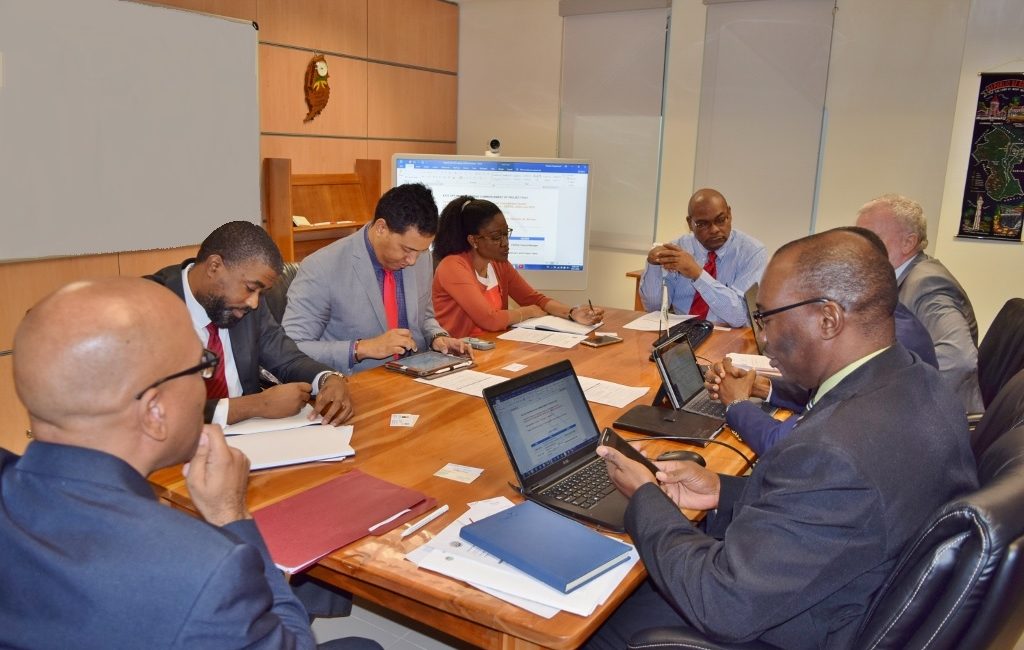New avenues for expanding intra-African, Caribbean and Pacific (ACP) trade are being explored, using quality as the basis for strengthening partnerships with CARICOM Member States.
This development comes with the launch of a second component of a joint TradeCom II Programme/ CARICOM Regional Organisation for Standards and Quality (CROSQ) initiative, funded by the ACP-European Union. The Kick-off meeting on the 11 March 2019 featured the start of this 2nd component of the TradeCom II programme. The overall aim of this TradeCom II intervention is to provide assistance to develop the quality services in the region, thereby allowing for increased trade capacity, competitiveness, diversification and economic performance. CARICOM’s National Bureaux of Standards (NSBs) are the main focus for the activities.
The project aims to:
- contribute to the activation of intra-regional quality infrastructure agreements in support of market access and improved trade performance through improved capacity in standards and technical regulations development and implementation in CARICOM. This will be facilitated through a feasibility study for developing trade capacity, enabling sustainability Standards and associated conformity assessment modalities, modelling the success of the African Organisation for Standardisation (ARSO) and a comparability study with European Standards Organisation/European Committee for Electrotechnical Standardization (CEN/CENELEC).
- support the development of an optimized quality infrastructure in the Pacific Region for enhanced trade competitiveness. This entails enhancing the understanding and capacity for developing Quality Infrastructure (QI) in the Pacific Islands Forum States (PIFS) through sharing the experiences of CROSQ, ARSO and CEN/CENELEC.
To achieve these goals, CROSQ will be working with the Quality Institute consultants to improve the capacity in standards and technical regulations development, and to reinforce the quality infrastructure cooperation between CROSQ, ARSO and the PIF. ARSO and PIFS are intergovernmental organisations like CROSQ that attempt to foster greater cooperation with and amongst members towards the development of the respective regions.
In his welcoming remarks on behalf of CROSQ, manager, Mr. Mohan Nandwani, pointed out that it was heartening that within the framework of activating intra-regional quality infrastructure agreements to support market access and improved trade, that this phase of the entire intervention would also see greater cooperation amongst the partners involved.

“This initiative will also include a feasibility study for developing trade capacity, enabling sustainability standards and associated conformity assessment modalities by CROSQ. This will be achieved through collaboration with ARSO. CROSQ will also be providing support to the development of an optimised quality infrastructure in the Pacific region to enhance their trade competitiveness and understanding of QI,” he said.
The European Union (EU) Delegation’s Programme Manager, Mr. Sheldon Jackman echoed the sentiments on the importance of such collaborations.
“We at the EU were heartened by the fact that cooperation was the underlying factor in making the project under the 10th EDF [European Development Fund] a successful one, and we also see that cooperation is one of the key pillars under the EPA,” he said, noting the necessity of collaborations between national and regional authorities in the area of quality towards facilitating both intra- and inter-regional trade.
He added that the EU was also encouraged by the fact that this project demonstrated a bridge between the 10th and 11th EDF Technical Barriers to Trade programmes, demonstrating the significance of collaboration, enthusiasm and cooperation, “to ensure that the commitments under the EPA by the CARIFORUM states are still being well implemented and are still top of mind”.
“Finally, I would like to stress the importance of the work being done that needs to be centred, not only on the protection of consumers but also on the private sector in the Caribbean, with practices that respond to its needs, that focus on the value chain, that build on the potential of the Caribbean economies, and concretely help businesses to export more and to achieve market penetration, not only in the EU but in other countries,” Mr. Jackman added.

CROSQ Project coordinator, Mr. Stephen Farquharson, who is also the Technical Officer – Accreditation and Conformity Assessment, noted that jointly, these initiatives revealed synergies in their objectives. Whilst the first phase focussed on the creation of a regional guide for Good Regulatory Practices, he stated that the current project was developed against the background of new and emerging practices to meet international requirements.
He further noted that the initiatives also highlighted the need for interventions that would assist bureaux with coping with their changing roles in new environments; the growing need for inter-operability and the need for awareness of the economic benefits of standards.
The Lead Key Expert, Mr. Sibbesen was keen about analysing some of the factors contributing to the RQI not being fully successful and to use this opportunity to recommend strategies for its’ strengthening. There needs to be a proper balance between the National Quality Infrastructure (NQI) and the Regional Quality Infrastructure (RQI) with proper involvement of the end-users (producers, manufacturers – who are mostly Small and Medium Enterprises (SMEs)).
Mr. Fulgence St. Prix noted that the “Quality Culture” of CARICOM is generally developing through increasing awareness of the importance of quality, hence the need to continue to build capacity via quality promotions.
Endorsing the importance of the project, Mr. St. Prix further indicated that through the successful implementation of this project we will see the strengthening of relations between CROSQ and CEN/CENELEC; CROSQ and ARSO, which fits with the existing Memorandum of Understanding (MOU) established between CROSQ and the EU standards body; and which redounds to increase maturity of the CROSQ network.




